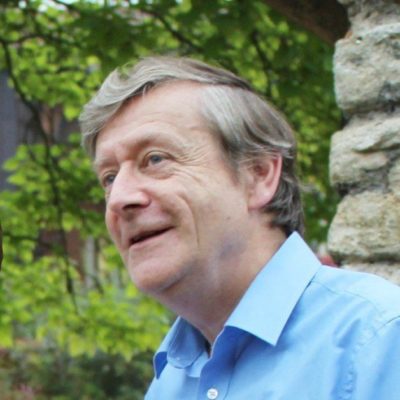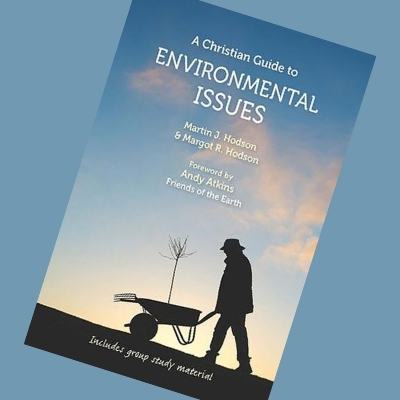During August we are running a series of articles exploring what it means to live well and how we can use the experiences of the past few months to move forward. In this first article, Martyn Payne reflects on our relationship with nature during lockdown.
A time of watching and waiting
‘Be still, and know that I am God!
I am exalted among the nations,
I am exalted in the earth.’
The Lord of hosts is with us;
the God of Jacob is our refuge.Psalm 46:10–11 (NRSV)
Over the past five months, perhaps for the first time in ages, we simply couldn’t avoid noticing how one season changes into another.
Perhaps the truth is that many of us had begun to take for granted that spring becomes summer or autumn turns into winter; this was no longer something worth paying particular attention to. We had become too busy to watch colourful blossom come and go, beautiful bluebells carpet our woods and the wonderful greening of the trees in our parks and forests. But this year it has been different.
Lockdown changed so much for all of us. Apart from taking us by surprise, it turned our predictable lives upside down. Parents and children had to find ways to be at home together for weeks on end; jobs on furlough or online disrupted routines; and news reports filled us with sadness and fear, as we were forced into a time of watching and waiting.
‘Lockdown turned our predictable lives upside down.’
At the same time, for most people, leisure travel and commuting to work ground to a halt, which opened up some breathing spaces that had hitherto been in short supply.
And that’s when many of us began to notice: to become aware of the seasons changing, the air clearing, the birdsong and animal life stirring; for once, the sounds of nature were louder than the traffic.
And even if we didn’t experience it for ourselves, we heard the reports of sea life returning to normally busy waterways, stars and planets being easier to see in the night sky, and mountain heights being visible for the first time without the smog and pollution from our cities.
In east London, where I live, our daily walks took us to a local park, where we had time to stop and watch as a woodpecker fed its young; we were there when the fledglings finally left the nest.
In a similar way we looked on as a pair of grebes took turns to sit patiently on their precarious nest out on the lake. And later, when the babies had hatched, we watched them in turn sit on their parents’ backs, before finally daring to launch out and swim alone.
What living well is really about
Of course, none of this in any way compensates for the awful litany of loss and grief that so many have experienced during this pandemic; and for those who were caught up in its worst effects, there was sadly little or no time to stop and appreciate any positive outcomes to this pandemic.
Nevertheless, when the world was necessarily put on pause, and the normal business of living stilled, many of us did rediscover what was really important about life, and it turned out not to be what we had thought it was.
‘Many of us rediscovered what was really important about life, and it turned out not to be what we’d thought it was.’
The blessings of local exercise, seeing friends even at a distance, being reminded of how special community is, enjoying a breathing space from the demands of relentless routines, unplanned quality time with the people closest to us, appreciating the vital role our key workers play, and a greater awareness of the beauty of creation – these were all lockdown insights that showed us what living well is really all about.
Maybe we needed our world to be turned upside down and brought to an uncomfortable halt like this in order to discover just this?
Those of us who believe that this is God’s world and who read the stories of God’s people as recorded in the Bible have over these last months come to a fresh recognition that their lasting experiences of God didn’t happen indoors. Rather, as the psalmist reminds us, it is the heavens and the skies which best proclaim God’s glory; and it is the ‘handiwork’ of creation that speaks most powerfully to us about its creator (Psalm 19:1–4). It’s almost as if 2020 so far has been a crash course in well-being, in which we have been offered the tools to reorder our lives for the better and so become again the people God made us to be.
A forgotten truth
There are many who long to hear God speak clearly. Like Job in the Old Testament, they want to hear what God has to say about suffering, unanswered prayer, natural disasters and life’s messiness. But for most of that particular story, God does not speak, only choosing to do so at the very end. And, rather than giving answers, God reveals himself to Job as the one who brought into being and sustains all aspects of the natural world (Job 38—41).
Interestingly, this was a truth that Job already knew but had forgotten. Earlier in the story, Job himself had counselled:
Just ask the animals, and they will teach you.
Ask the birds of the sky, and they will tell you.
Speak to the earth, and it will instruct you.
Let the fish in the sea speak to you…
For the life of every living thing is in his hand,
and the breath of every human being.
Job 12:7–8, 10 (NLT)
I think that, like Job, all of us know deep down that living well is tied up with appreciating God’s world and finding the time and space to enjoy this beautiful home that God has given us. Our lives are intimately bound up with the glory of this place.
Creation care is self-care
This is one of the many reasons why looking after this planet is so important, because in the end it is us who will suffer the consequences.
To be creation carers was our first great commission, and it is one of the ways we can best care for ourselves too. And then to put people in touch with the God of creation, who loves us and who sent Jesus to bring us home to that love – which is our second great commission – introduces us to ‘fullness of life’, which is the best way of living well we can experience.
I wonder how one day we will look back on these past months. Were they the moment when we rediscovered what life was all about? Were they that vital, though painful, wake-up call to what really matters? If we do manage to learn from these months about living well from God’s lessons in nature, that at least that will be one positive legacy from this awful time – a legacy of hope for our future.
‘To be creation carers was our first great commission and is one of the ways we can best care for ourselves.’
Let’s pray that it was not only the seasons that changed in those months, but also our hearts.
Pray with us
Lord Jesus,
who came to give us life in all its fullness,
draw us daily closer to you
that we might learn how to live life well.
Help us to appreciate
the beauty of your creation,
the gift of one another
and the wonder of the Father’s love.
Amen

About Martyn
Martyn Payne was a BRF staff member and part of the Messy Church team until his retirement in 2018. Martyn is now a volunteer and writes the BRF prayer diary and is involved in Messy Church.
Praying with us
There are several ways that you can pray for our work, including:
- using our prayer diary
- following us on Facebook
- subscribing to our weekly email
Further reading

A Christian Guide to Environmental Issues
Martin and Margot Hodson offer a biblical reflection on some of the environment issues that affect our world today. There are some eco-tips to enable us to respond to some of the challenges including climate change and other issues.
Posted 2 August 2020
